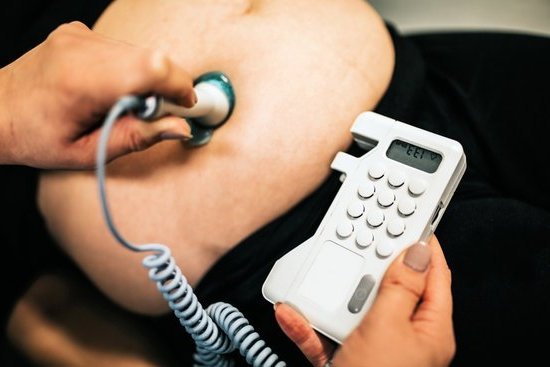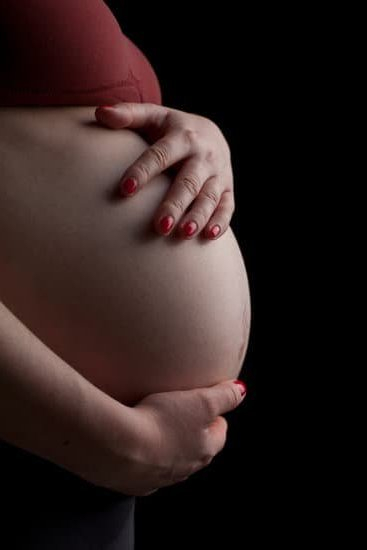Pregnancy is a unique journey for every woman, marked by different stages and milestones. Understanding the various pregnancy stages is crucial for expectant mothers to know what to expect and how to best take care of themselves and their growing baby. From the first trimester to the third trimester, each stage brings its own set of physical and emotional changes, along with fetal development and common symptoms and discomforts.
During the first trimester, which spans from weeks 1 to 12, a woman experiences significant changes in her body as her baby begins to grow and develop. The second trimester, from weeks 13 to 27, is often referred to as the “honeymoon phase” of pregnancy due to decreased nausea and heightened energy levels. Finally, the third trimester, which encompasses weeks 28 to 40, is marked by the anticipation of labor and delivery as the baby nears full term.
Throughout these stages, both physical and emotional changes are prevalent. It’s important for women to be aware of these changes and seek support when needed.
Additionally, understanding fetal development at each stage can help expecting mothers feel more connected to their growing baby. In this article, we will delve into each pregnancy stage in detail, explore common symptoms and discomforts experienced during pregnancy, discuss tips for navigating each stage successfully, and provide an overview of what to expect during this incredible journey into motherhood.
First Trimester
The first trimester of pregnancy, which includes weeks 1 to 12, is a crucial and exciting time for expectant mothers. During this stage, the body undergoes significant changes as it begins to accommodate the growing fetus. One of the first signs of pregnancy is a missed period, which leads to many women taking a pregnancy test to confirm their suspicions.
Physically, the body starts to prepare for the baby’s development. The uterus begins to expand, and many women experience morning sickness and fatigue during this time. Hormonal changes can also lead to breast tenderness and frequent urination. It is essential for women in this stage to start taking prenatal vitamins and establish a healthy diet and exercise routine.
Emotionally, many women experience a mix of excitement and anxiety during the first trimester. It is common to feel overwhelmed as they adjust to the idea of becoming a mother and cope with hormonal fluctuations. Seeking support from loved ones or attending prenatal classes can help expecting mothers navigate through these emotions. Understanding that these changes are part of the process can provide some reassurance during this stage of pregnancy.
As fetal development progresses during the first trimester, major organs begin to form, and the baby’s heartbeat becomes detectable. This period marks a crucial time for prenatal care visits with healthcare providers for check-ups and monitoring fetal growth. Taking steps towards a healthy lifestyle such as avoiding harmful substances like alcohol and cigarettes will contribute positively toward both maternal and fetal well-being during this pivotal time in early pregnancy stages.
Second Trimester
During the second trimester of pregnancy, which spans from weeks 13 to 27, many women find relief from the nausea and fatigue that often accompany the first trimester. This period is often referred to as the “honeymoon phase” of pregnancy, as women typically feel more energetic and experience less discomfort compared to the earlier weeks. However, it is important to note that every woman’s experience during this stage can vary.
Physical Changes
As the baby continues to grow during the second trimester, physical changes in a woman’s body become more pronounced. The belly starts to visibly expand as the uterus expands above the pelvic bones, and women may start to experience symptoms such as backaches, abdominal pain, and skin changes due to stretching. Additionally, some women may also notice an increase in breast size and may start feeling fetal movement for the first time.
Emotional Changes
The second trimester can also be a period of emotional upheaval for many expectant mothers. While some women report feeling more positive and energized during this stage, others may still struggle with mood swings or anxiety about their changing bodies and impending responsibilities. It is important for pregnant women to seek support from their partners, family members, and healthcare providers during this time.
Fetal Development
During the second trimester, the fetus undergoes rapid development. By week 27, most of the baby’s major organs are fully formed and functional. At this stage, expectant parents may have the opportunity to learn their baby’s sex through ultrasound screenings if they choose to do so. Additionally, they may start feeling fetal movements more consistently as the baby becomes more active in utero.
Third Trimester
The third trimester of pregnancy is a crucial and exciting time for expectant mothers as they prepare for the arrival of their little one. This stage typically spans from week 28 to week 40, culminating in the birth of the baby. During this period, the mom-to-be will experience numerous physical and emotional changes as she navigates through the final weeks of pregnancy. Here are some important things to know about the third trimester:
- Increased discomfort: As the baby continues to grow and develop, the expectant mother may experience increased discomfort in her back, pelvis, and abdomen. The pressure on her bladder can lead to more frequent trips to the bathroom, and she may also suffer from heartburn and indigestion due to the growing baby pressing against her digestive organs.
- Fetal development: By this stage, the baby’s organs are almost fully developed, and he or she is gaining weight rapidly in preparation for birth. The fetus begins to fill out as it accumulates fat under its skin, and it becomes more active with noticeable movements that can be felt by the mother.
- Preparation for childbirth: Throughout the third trimester, the expectant mother will begin preparing for childbirth by attending prenatal classes, creating a birth plan, and making arrangements for labor and delivery. It is also essential to pack a hospital bag with essentials for both mom and baby.
As expectant mothers enter into their third trimester, it is crucial for them to take care of themselves both physically and emotionally. Practicing self-care techniques such as gentle exercise, proper nutrition, getting enough rest, and seeking emotional support can help manage any challenges that may arise during these final weeks of pregnancy. With proper care and attention during this crucial period, expectant mothers can look forward positively to welcoming their newborn into the world.
Physical Changes During Pregnancy
Pregnancy is a period of enormous change for a woman’s body. These changes occur to accommodate the growth and development of the fetus, as well as to prepare the mother’s body for childbirth and breastfeeding. The physical changes during pregnancy are most prominent during each of the three trimesters, with each stage bringing its own set of transformations.
During the first trimester, the body experiences a surge in hormones such as progesterone and estrogen, which can lead to symptoms like nausea, breast tenderness, and fatigue. Many women also experience frequent urination and food aversions during this stage. As the uterus begins to grow and expand, women may start noticing a small bump forming at their lower abdomen.
In the second trimester, many women experience relief from some of the symptoms that plagued them in early pregnancy. However, physical changes continue as the uterus grows larger and becomes more noticeable. Women may also notice weight gain in various parts of their body – particularly in their breasts and abdomen – as well as an increase in skin pigmentation throughout their entire body.
By the third trimester, physical changes become even more pronounced as the baby continues to grow rapidly. The uterus will have reached its largest size by this point, putting pressure on other organs such as the bladder and causing shortness of breath. Swelling in the feet and legs is common due to increased fluid retention.
Additionally, stretch marks may appear on the abdomen, thighs, or breasts due to rapid weight gain. Overall, these physical changes are a natural part of the pregnancy stages and signify that both mother and baby are progressing healthily towards delivery.
Emotional Changes During Pregnancy
During the various pregnancy stages, women experience a wide range of emotional changes that can have a significant impact on their overall well-being. These emotional changes are often attributed to hormonal fluctuations, physical discomfort, and the anticipation of becoming a parent. It’s important for expectant mothers to understand and acknowledge these emotions in order to ensure a healthy and positive pregnancy experience.
Early Pregnancy
In the first trimester, many women experience a mix of excitement and anxiety as they come to terms with the reality of being pregnant. Some may also feel symptoms such as mood swings, increased sensitivity, and heightened emotions due to surges in hormone levels. It’s common for women to feel overwhelmed by the changes happening to their body and their lives during this time.
Middle Pregnancy
As the pregnancy progresses into the second trimester, many women report feeling more emotionally stable and connected to their growing baby. The physical discomforts from early pregnancy may subside, leading to an improved emotional state. However, concerns about childbirth and parenting can lead to feelings of apprehension and insecurity during this stage.
Late Pregnancy
In the final trimester, emotions can often swing back towards feelings of anxiousness and impatience as expectant mothers start anticipating labor and delivery. Women may also grapple with feelings of discomfort due to the physical strain of carrying a baby in its final stages. It’s important for women at this stage to practice self-care and seek support from loved ones to navigate these complex emotions effectively.
Common Symptoms and Discomforts at Each Stage
During the different pregnancy stages, women experience a wide range of physical and emotional changes. These changes can bring about various symptoms and discomforts that are often associated with each trimester.
In the first trimester, many women experience symptoms such as morning sickness, fatigue, breast tenderness, and frequent urination. These symptoms are mainly due to hormonal changes and the body adjusting to pregnancy. For some women, these discomforts can be quite challenging to manage, while others may find relief after the first trimester.
Moving on to the second trimester, many women notice improvements in symptoms such as morning sickness and fatigue. However, new discomforts can arise such as back pain, heartburn, and varicose veins. It’s also common for women to start feeling fetal movements during this stage.
As the third trimester begins, physical discomforts tend to intensify once again. Women may experience swollen ankles and feet, shortness of breath, difficulty sleeping due to the growing belly, and increased pressure on the bladder. These are all normal occurrences as the body prepares for childbirth.
Understanding these common symptoms and discomforts at each stage of pregnancy can help women know what to expect and how to manage them effectively. Consulting with healthcare providers is crucial for addressing any concerns or complications that may arise during this time.
| Pregnancy Stage | Common Symptoms and Discomforts |
|---|---|
| First Trimester: Weeks 1-12 | Morning sickness, fatigue breast tenderness. |
| Second Trimester: Weeks 13-27 | Improvement in morning sickness but new discomforts like back pain and heartburn. |
| Third Trimester: Weeks: 28-40 | Intensified physical discomforts including swollen ankles & feet and difficulty sleeping. |
Fetal Development at Each Stage
During the first trimester of pregnancy, fetal development is a crucial stage as the fertilized egg rapidly divides into various cell types which eventually form the embryo. By week 4, the neural tube, which will later become the brain and spinal cord, begins to form. At around week 6, the heart starts beating and facial features begin to develop. By week 12, the baby’s organs, muscles, and nervous system are all forming.
In the second trimester, from weeks 13 to 27, the fetus experiences rapid growth. By week 15, the baby is able to make facial expressions such as squinting or frowning. Around week 20, the fetus is capable of hearing sounds from its environment. The lungs begin to develop in preparation for breathing by week 24. By week 27, most of the baby’s vital organs are formed and it can open its eyes.
In the third trimester (weeks 28-40), there is further development in both weight gain and organ maturation for the fetus. The brain continues to develop while fat stores begin to accumulate under its skin for insulation and energy storage after birth. By week 32, almost all of the baby’s systems are ready for life outside of mother’s womb.
| Pregnancy Trimester | Fetal Development |
|---|---|
| First Trimester (Weeks 1-12) | Organs form; bones begin to develop; heart starts beating; facial features start developing. |
| Second Trimester (Weeks 13-27) | Rapid growth; begins making facial expressions; capable of hearing sounds; lungs develop. |
| Third Trimester (Weeks 28-40) | Weight gain; brain development; fat accumulation under skin for insulation. |
Tips for Each Pregnancy Stage
During each pregnancy stage, there are specific tips that can help expectant mothers navigate the physical and emotional changes they may experience. In the first trimester, it is important to focus on self-care by getting plenty of rest, staying hydrated, and eating a well-balanced diet.
It’s also a good idea to start taking prenatal vitamins and to schedule regular check-ups with a healthcare provider. Additionally, expecting mothers should consider joining a support group or seeking guidance from friends or family members who have been through pregnancy before.
As the pregnancy progresses into the second trimester, it becomes important to maintain a healthy lifestyle by engaging in regular exercise that is safe for both mom and baby. It is also wise to start thinking about childbirth education classes and planning for maternity leave if applicable.
The second trimester is often referred to as the “honeymoon” phase of pregnancy due to increased energy levels and reduced nausea, so taking advantage of this time for bonding with your partner and preparing for the arrival of your baby can be beneficial.
In the third trimester, it’s crucial to continue focusing on self-care while also preparing for labor and delivery. Expectant mothers should practice relaxation techniques, such as breathing exercises or prenatal yoga, as well as create a birth plan outlining their preferences for labor and delivery.
It’s also recommended to pack a hospital bag and arrange for postpartum support once the baby arrives. Throughout all three stages of pregnancy, seeking support from healthcare professionals and loved ones can help ease any anxieties or uncertainties that may arise during this transformative time.
Conclusion and Recap of Pregnancy Stages
In conclusion, the journey through pregnancy stages is a remarkable and transformative experience for expectant mothers. Each trimester brings its own set of physical and emotional changes, as well as unique developments in fetal growth. From the early weeks of the first trimester to the final stretch of the third trimester, women can expect both joyous moments and challenging symptoms as they prepare for the arrival of their baby.
As we have explored in this article, the first trimester is marked by significant physical changes such as morning sickness and fatigue, while emotional adjustments may include mood swings and anxiety. The second trimester brings relief from early pregnancy symptoms, but new discomforts like back pain and swelling may arise. Finally, the third trimester presents its own set of challenges including difficulty sleeping and increased physical discomfort due to the growing baby.
Despite these challenges, navigating through each stage of pregnancy can be made easier with proper self-care and support. By following tips for each pregnancy stage such as maintaining a nutritious diet, staying active with prenatal exercise, and seeking emotional support, expectant mothers can navigate through their pregnancy journey with confidence and resilience.
As women continue to progress through the different pregnancy stages, it’s important to remember that each phase is fleeting and leads them one step closer to meeting their precious little one.
Frequently Asked Questions
At What Stage Are You Actually Pregnant?
Pregnancy is typically measured in weeks, with the start of the pregnancy being the first day of a woman’s last menstrual period. So, when a woman is said to be “8 weeks pregnant,” she actually conceived about 6 weeks ago.
Which Is the Most Critical Stage of Pregnancy?
The most critical stage of pregnancy is generally considered to be the first trimester, or the first 12 weeks. This is when the baby’s major organs are forming and when there is an increased risk of miscarriage.
How I Knew I Was Pregnant?
Many women may suspect they are pregnant if they experience common early signs like a missed period, nausea, breast tenderness, frequent urination, and fatigue. Taking a home pregnancy test can confirm suspicions early on in the pregnancy.

Welcome to my fertility blog. This is a space where I will be sharing my experiences as I navigate through the world of fertility treatments, as well as provide information and resources about fertility and pregnancy.





